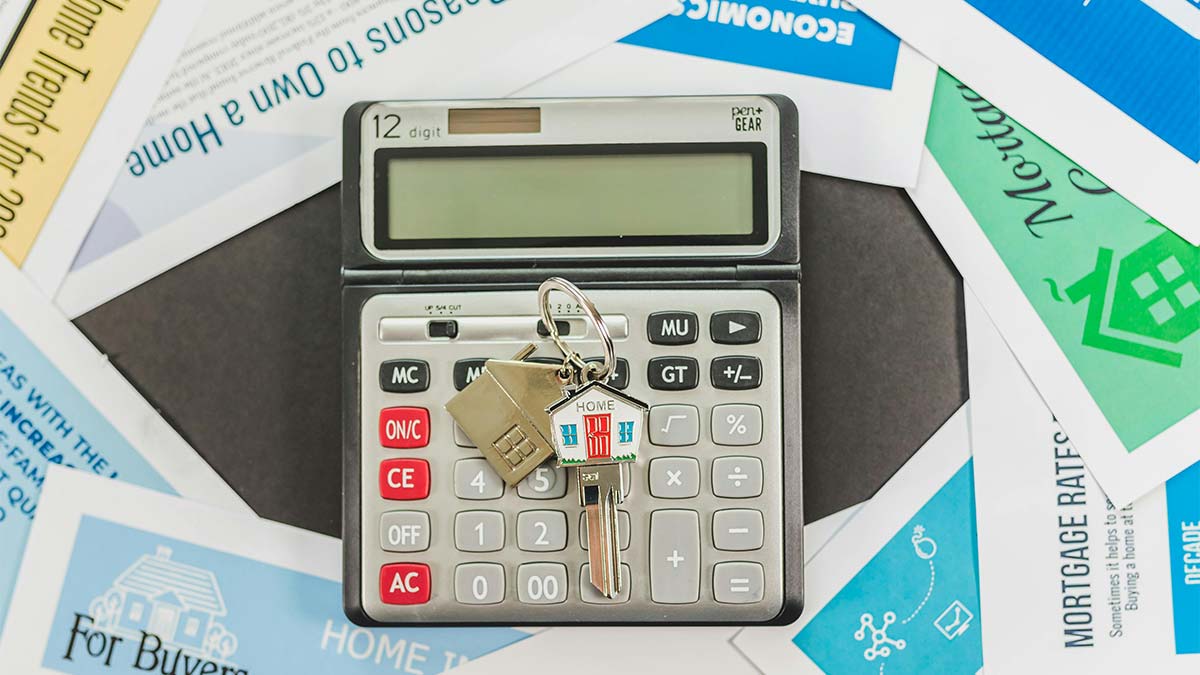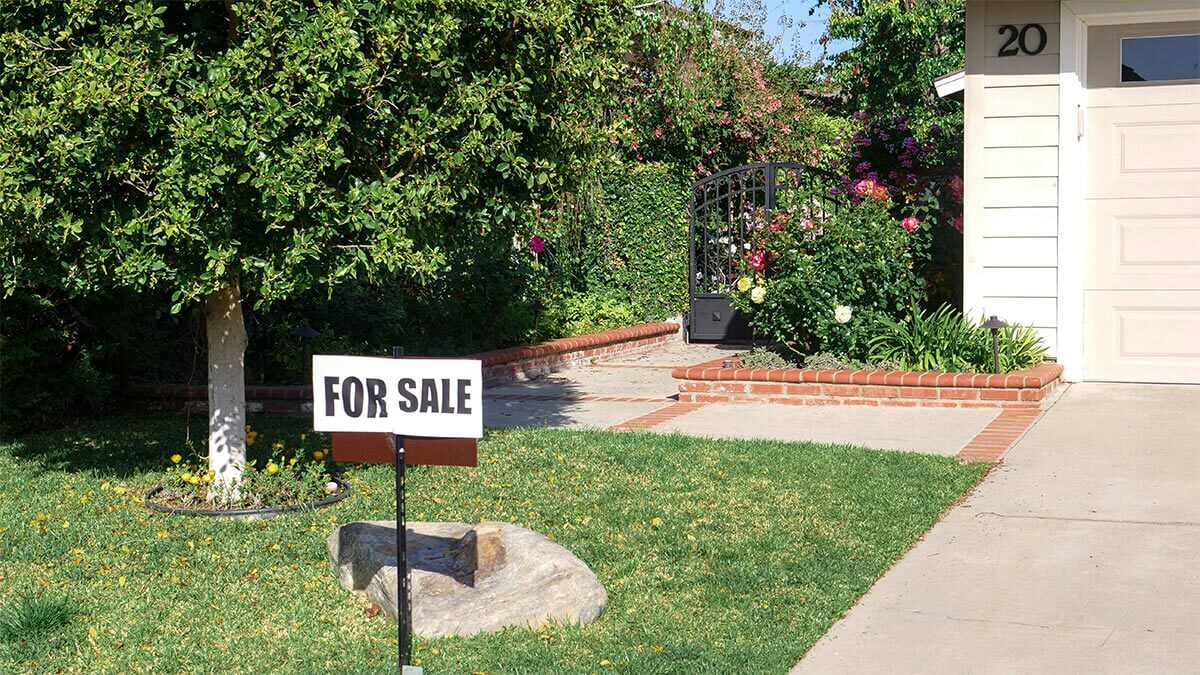You just got the call, your home is now “in escrow.” Sounds official, right? But what does that actually mean? Don’t worry. You’re not alone if this part of the home-selling process feels a little confusing.
Escrow is just a fancy way of saying a third party is holding on to things (like money or paperwork) until both sides do what they promised. It helps protect both the buyer and the seller from any last-minute surprises.
In this guide, I’ll walk you through what it means when your home is in escrow, what to expect next, and how to keep things moving smoothly.
Want to avoid the drama altogether? Skip the back-and-forth and sell directly. Get your cash offer from iBuyer.com today, no listings, no showings, no waiting.
Instant Valuation, Confidential Deals with a Certified iBuyer.com Specialist.
Sell Smart, Sell Fast, Get Sold. No Obligations.
Escrow in Real Estate
- What Does “In Escrow” Mean in Real Estate Transactions?
- How the Escrow Process Works When Buying a Home
- Escrow Accounts Explained
- Monthly Escrow Payments for Taxes and Insurance
- What Happens After Escrow Closes?
- Reilly’s Two Cents: Tips From Someone Who’s Been There
- Keeping Communication Open
- Frequently Asked Questions
What Does “In Escrow” Mean in Real Estate Transactions?
In real estate, “escrow” is a legal arrangement where a neutral third party, called an escrow agent, holds money, documents, or both until certain conditions are met. This ensures that neither the buyer nor the seller can make off with anything before the deal is ready to close.
Once you and the buyer sign the purchase agreement, the buyer typically deposits earnest money into an escrow account. This deposit shows they’re serious about the purchase. The funds stay there while both sides complete key steps, like inspections, loan approvals, and title searches.
The escrow agent keeps everything on track, making sure each side sticks to the agreement. You may need to handle repairs, submit documents, or respond to lender requests. The buyer might need to finalize financing or purchase insurance.
Contingencies, like a home passing inspection or the buyer securing financing, must be cleared before escrow can close. If one of these conditions isn’t met, the sale can fall through, and the earnest money may be refunded or forfeited depending on the terms.
Bottom line: escrow protects both the buyer and the seller by making sure everyone holds up their end of the deal.
How the Escrow Process Works When Buying a Home
When a buyer makes an offer and you accept it, your home goes “under contract”, and that’s when escrow begins. From there, the process moves through four key stages: contract, deposit, due diligence, and closing.
After signing the contract, the buyer makes a deposit, known as earnest money, into an escrow account. This money shows they’re committed to the deal and gives you some protection if they back out without a valid reason.
Next comes due diligence. This is the buyer’s window to investigate the home and make sure everything checks out. It often includes:
- A home inspection to spot problems like roof damage or plumbing issues
- A title search to confirm you’re the legal owner and that there are no hidden liens or ownership disputes
- An appraisal ordered by the lender to make sure the home is worth the agreed price
- Homeowners insurance setup, sometimes required before the loan can close
If the buyer is using an FHA loan, the home might also need to meet stricter safety and condition standards.
Meanwhile, the buyer’s lender works behind the scenes to approve the mortgage. This includes reviewing credit, verifying employment, and confirming that the buyer can afford the home.
You and your real estate agent will need to stay on top of any repair requests or extra paperwork during this time. Communication is key, especially if the buyer flags issues or asks for concessions.
All of these tasks are considered “conditions” that must be satisfied before the sale can close. If they’re not met, say, the buyer’s financing falls through or the inspection turns up something major, the deal could stall or fall apart.
So while escrow sounds simple on paper, it’s really a period full of moving parts. But once the due diligence is complete and everything checks out, you’re on the fast track to closing.
Escrow Accounts Explained
Not all escrow accounts are the same. In fact, there are two main types in real estate, and knowing the difference can save you a lot of confusion.
First, there’s the escrow account used during the sale. This is a short-term account managed by an escrow agent, holding things like earnest money, the purchase contract, and important documents. It stays active until the deal closes. Both the buyer and seller rely on it to make sure money and paperwork change hands fairly.
Then, there’s the escrow account tied to your mortgage. This is a long-term account usually set up by the lender. Once the buyer owns the home, the lender may collect extra money each month, on top of the mortgage, to cover property taxes and homeowners insurance. Those funds go into the escrow account, and the lender uses them to pay those bills when they’re due.
So while one escrow account helps close the deal, the other helps manage ongoing tax and insurance payments after closing.
Whether you’re selling or buying, it’s important to know which kind of escrow is in play, and who’s managing it.
Monthly Escrow Payments for Taxes and Insurance
If the buyer is using a mortgage, their lender will likely set up a monthly escrow payment to cover big yearly bills like property taxes and homeowners insurance. Instead of paying those lump sums all at once, the buyer pays a little extra each month as part of their monthly mortgage payment.
Here’s how it works: The lender estimates the yearly cost of tax and insurance premiums, then divides that amount by 12. Each month, the buyer pays 1/12th into their escrow account. When the bills come due, the lender pays them using that account.
This setup helps buyers avoid surprise bills. But the numbers can change. If the cost of property taxes or insurance goes up, the lender will adjust the monthly escrow amount after doing an escrow analysis, usually once a year.
Sometimes, these changes lead to an escrow shortage, meaning the account didn’t have enough to cover the bills. Other times, there’s an escrow surplus, and the buyer may get a refund or credit.
For sellers, it’s helpful to understand this system, especially if the buyer comes back with questions about how much they’ll owe monthly or why their payments fluctuate.
Types of Escrow Accounts and When They Apply
Escrow accounts aren’t one-size-fits-all. Depending on the stage of the transaction, the type of loan, or even your lender’s policies, different escrow accounts may come into play.
The first type is the purchase escrow account. This is a temporary account set up when the buyer and seller sign the contract. It holds the earnest money, purchase agreement, and other documents. Once the sale closes, this account is shut down.
The second type is a mortgage escrow account, which sticks around long after the home changes hands. Lenders use it to collect money from the buyer each month to cover property taxes and insurance premiums. These accounts help prevent missed payments by handling the bills directly.
In some cases, setting up a mortgage escrow account is optional. But if the buyer’s loan is backed by the Federal Housing Administration (FHA) or if they put down less than 20 %, the lender might require it. This reduces the risk of unpaid taxes or lapsed insurance.
If you’re the seller, you might also be asked to establish an escrow account for things like post-closing repairs or prorated taxes. It all depends on what’s negotiated in the contract.
Knowing the type of escrow involved, and who’s managing it, can help both sides avoid confusion at closing.
What Happens After Escrow Closes?
Once all conditions are met and documents are signed, escrow wraps up with the closing. At this point, the escrow agent releases the funds, transfers the title, and makes everything official.
As the seller, you’ll get the proceeds from the sale, minus any remaining mortgage balance or agreed closing costs. The buyer receives the keys, and the home is now legally theirs.
If you were holding money in escrow for repairs or unpaid taxes, those funds will be distributed as agreed in the contract. Any earnest money is also released to the seller (you) or refunded to the buyer, depending on how things played out.
In short, closing escrow is the final handshake of the deal. Everything that was held in limbo, money, documents, ownership, gets sorted, and both sides can move on.
Reilly’s Two Cents: Tips From Someone Who’s Been There
I’ve been through my fair share of home sales, and escrow always seems to be the part where people start to feel overwhelmed. Even when everything’s going smoothly, it can feel like there are a dozen things flying at you at once, emails, deadlines, documents. It’s a lot, and that’s totally normal.
If you’re in escrow right now, here are a few things I always tell sellers to keep in mind:
- Respond quickly. If the escrow agent, buyer, or your agent needs something from you, try to turn it around fast. Delays, even small ones, can mess with your closing timeline.
- Keep good records. Save every signed document, receipt, or repair invoice. Escrow is detail-heavy, and you don’t want to be hunting for something the night before closing.
- Don’t assume it’s done until it’s closed. I’ve seen deals fall through just days before closing because someone missed a condition. Stay involved, ask questions, and make sure all the boxes are checked.
- Lean on your agent. This is their job. If something feels off or you’re unsure what a term means, speak up. You’re not expected to know everything, that’s why you hired help.
Escrow can feel like a balancing act, but with a little attention and the right support, you’ll get to the finish line just fine.
Keeping Communication Open
Escrow might sound complicated, but at its core, it’s just there to make sure everything goes right for both sides. It protects your money, your paperwork, and your peace of mind during a major transaction.
By staying organized, keeping communication open, and knowing what to expect, you can get through escrow without the stress. And if you’d rather skip the whole process next time?
Get a fair cash offer from iBuyer.com, close on your timeline, with no surprises or showings.
Compare Cash Offers from Top Home Buyers. Delivered by Your Local iBuyer Certified Specialist.
One Expert, Multiple Offers, No Obligation.
Frequently Asked Questions
It means a third party is holding money and documents while the buyer and seller complete the steps needed to close the sale.
Escrow typically lasts 30 to 45 days, but it can be shorter or longer depending on financing, inspections, and how quickly conditions are met.
A neutral party called an escrow agent manages the funds in a secure account until closing.
Yes, but it depends on the contract. If certain conditions aren’t met, either party may be able to back out without penalties.
For buyers with a mortgage, monthly escrow payments usually cover property taxes and homeowners insurance. The lender manages these payments from the escrow account.
Reilly Dzurick is a seasoned real estate agent at Get Land Florida, bringing over six years of industry experience to the vibrant Vero Beach market. She is known for her deep understanding of local real estate trends and her dedication to helping clients find their dream properties. Reilly’s journey in real estate is complemented by her academic background in Public Relations, Advertising, and Applied Communication from the University of North Florida.




